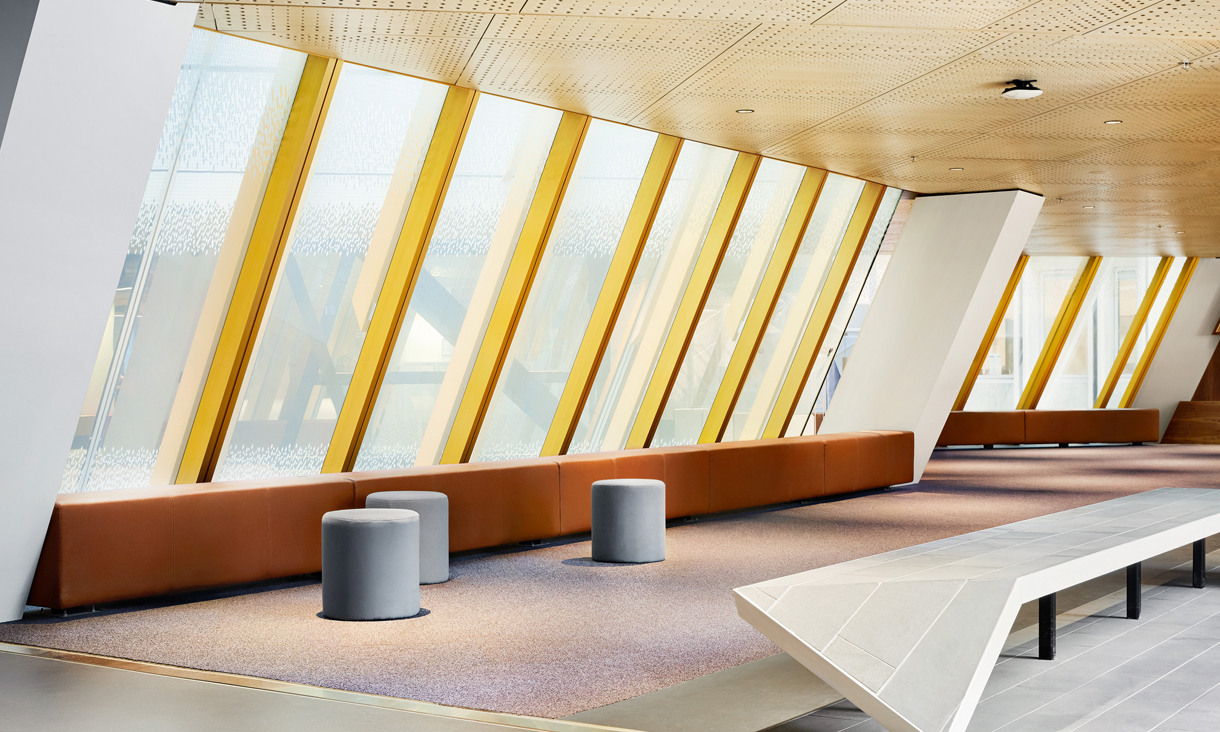
RMIT backs new report calling for improved pathways for secondary students
A new report recommending major changes to support senior secondary students to choose the best pathway into work, further education or training has been welcomed by RMIT’s School of Education and the RMIT Urban School.
Commissioned by the Education Council, The Looking to the Future- Report of the Review of Senior Secondary Pathways into Work, Further Education and Training was led by Professor Peter Shergold AC.
The report found secondary students need a shift in educational focus beyond purely academic skills, knowledge to help them thrive in future and clearer guidance about the range of educational and training pathways available following high school.
The findings also highlighted shortfalls in current transition pathways, including a heavy reliance on the ranking score, the Australian Tertiary Admission Rank (ATAR) as a measure of success.
RMIT Deputy Vice-Chancellor Education and Vice-President, Professor Belinda Tynan, said she welcomed the report’s recommendations that called for more inclusive, diverse, and innovative school-based pathways into higher education, work and life.
“At RMIT we have a strong focus on providing access, quality, and diversity of connected pathways to senior secondary students, and an education that prepares them for the future world of work and life. We are pleased that this is reflected in the Looking to the Future Report and fully support its findings and recommendations,” Tynan said.
“It is clear that significant nationwide change is needed to ensure all young Australians can gain access to productive work and life opportunities through more diverse, life-long and intertwined educational experiences.”
 The report, 'Looking to the Future - Report of the Review of Senior Secondary Pathways into Work, Further Education and Training' was commissioned by the Education Council.
The report, 'Looking to the Future - Report of the Review of Senior Secondary Pathways into Work, Further Education and Training' was commissioned by the Education Council.
Other key recommendations of the report include:
- students gain a ‘Learner Profile’ that incorporates not only their ATAR score where relevant, and individual subject results, but also captures the broader range of evidenced capabilities necessary for employment and active citizenship.
- re-packaging senior secondary certification requirements and the way learning is packaged so that students are not presented with just a choice between vocational or higher education pathways.
- a national approach to the use of micro-credentialing in schools that encourages senior secondary students to access high-quality, relevant courses developed by tertiary education and training providers, industry groups or employers.
- education authorities and industry bodies formalise their working relationship to facilitate industry engagement in senior secondary schooling.
RMIT’s Urban School offers personalised pathways from school to tertiary study that featured in the report as a case study. Located in the Melbourne CBD, the school gives secondary students an opportunity to blend VCE, Vocational Education and Higher Education subjects along with micro-credentials.
“We are proud that the RMIT Urban School’s core principles of student agency, inclusion, diversity and futures-oriented pathways that emphasise lifelong learning are emphasised in this report’s recommendations,” Tynan said.
“We also support the findings that single measurements of success and an over-emphasis on the importance of achieving a competitive ATAR are narrow and can limit opportunities for many of our young people and their future success.” “Our approach in the RMIT Urban School draws on contemporary evidence that illustrates there are many, equally valid ways to reach the same outcome of improving education, employment and life outcomes for students.”
The RMIT Urban School or ‘a school within a school’, demonstrates a successful model based upon student-centred, transformational learning that invites and enables young people to live consciously and purposefully in the world alongside evidence-based teaching practice.
“Our school represents a trial platform for learner profiles being used successfully for tertiary admission and the validation of broader, more innovative recognition of the learning achievements of young people,” she said.
“We offer senior secondary students the opportunity to build lifelong learning ‘passports’ that combine their interests, help them to find their passions, and allow for flexibility in trialling new subject areas and ways to apply their skills.
“Our students are guided in their decisions by a pathways co-ordinator and supported by careers and counselling advisors from RMIT.
“The ultimate aim is to have students build career knowledge and learning resilience through trial and understanding of skills, and to become ethical and informed architects for tomorrow's world.”
The Looking to the Future- Report of the Review of Senior Secondary Pathways into Work, Further Education and Training is available here.
For media enquiries, please contact RMIT Communications: 0439 704 077 or news@rmit.edu.au.
- Research
- Future World of Work
- Education
- Student experience
Acknowledgement of Country
RMIT University acknowledges the people of the Woi wurrung and Boon wurrung language groups of the eastern Kulin Nation on whose unceded lands we conduct the business of the University. RMIT University respectfully acknowledges their Ancestors and Elders, past and present. RMIT also acknowledges the Traditional Custodians and their Ancestors of the lands and waters across Australia where we conduct our business - Artwork 'Sentient' by Hollie Johnson, Gunaikurnai and Monero Ngarigo.